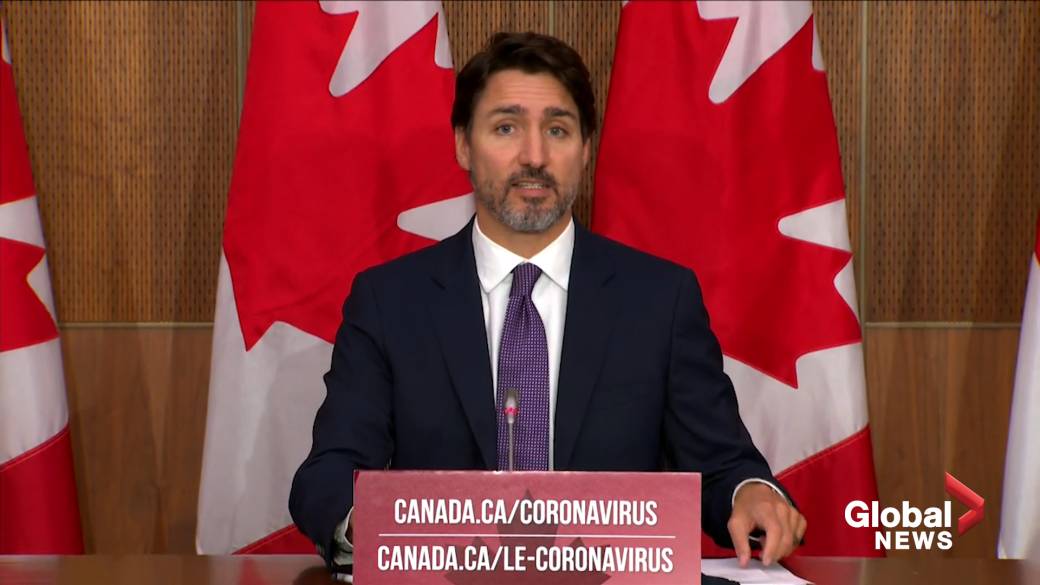Prime Minister Justin Trudeau appeared to walk back his government’s promise to end all water-boil advisories in First Nations communities by March 2021.

Pressed by reporters Friday, Trudeau wouldn’t commit to meeting the 2021 deadline and said the federal government was working to lift the remaining drinking water advisories “as soon as possible.”
“We recognize there’s lots more work to do,” Trudeau said. “Travel restrictions related to (COVID-19) have made it more difficult in certain situations, but we continue to work very closely with communities across the country.”

Trudeau’s comments come amid a water crisis in Neskantaga First Nation, about 450 kilometres north of Thunder Bay, where officials shut off the water after an “oily sheen” was found in the water reservoir. Over 200 residents have now been evacuated to Thunder Bay, where they are being housed in hotels.

The prime minister said his government has lifted 95 drinking water advisories since 2015, but the Indigenous Services Canada website says 61 advisories remain.

Get breaking National news
“As we know, this is the commitment that matters an awful lot to us as a government, but matters even more to Indigenous communities across the country that have gone, in many cases, decades without safe drinking water,” Trudeau said. “We’re working extremely quickly to try and resolve all of them.”
Neskantaga Chief Chris Moonias told Global News Thursday that elders, children, infants and people with chronic health conditions were flown out of the community after a water shutdown that closed the school and nursing station.

Neskantaga has been under a water boil advisory for more than 25 years. Moonias said the federal government needs to work with the community to find a permanent solution to the water issues.
“I’ve never had access to clean drinking water and I’m 50 years old,” he said. “You hate to see your relatives, your children, your future, living in this condition.”
Moonias released a list of minimum demands that the First Nation says must be met before residents return to the First Nation, including running water that’s available 24 hours a day, even if a boil water advisory persists, decontamination of homes and investigation into what led to the public health crisis.
“Right now we are being offered band-aid solutions,” Moonias said. “Everything needs a complete overhaul.”

Meanwhile, Indigenous Services Canada said it’s urgently working to resolve the crisis and will pay for the evacuation and expedite the water tests. Ottawa is also funding $16.44 million for a new water treatment plant.
“We will continue to provide funding for bottled water to ensure that remaining residents of Neskantaga First Nation have continued access to safe drinking water,” Vanessa Adams, press secretary for Indigenous Services Minister Marc Miller, said in an email.
“The construction of the community’s new water treatment plant is in its final stages. Upgrades to the waste water plant have been funded by ISC and are currently underway.”
The Trudeau government originally stated in December 2015 that the community would get a new treatment plant up and running by the spring of 2018. A string of construction delays and equipment failures pushed the new date to March 2019, but work is still ongoing.








Comments
Want to discuss? Please read our Commenting Policy first.